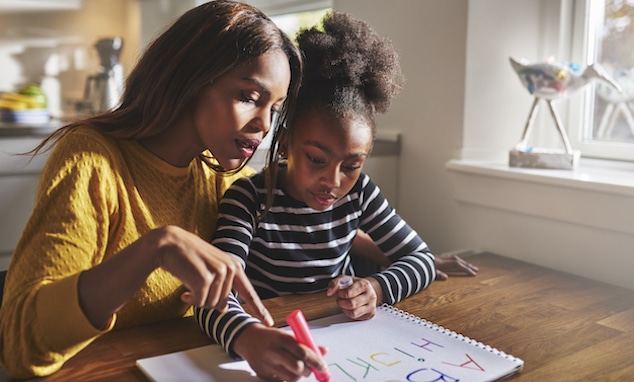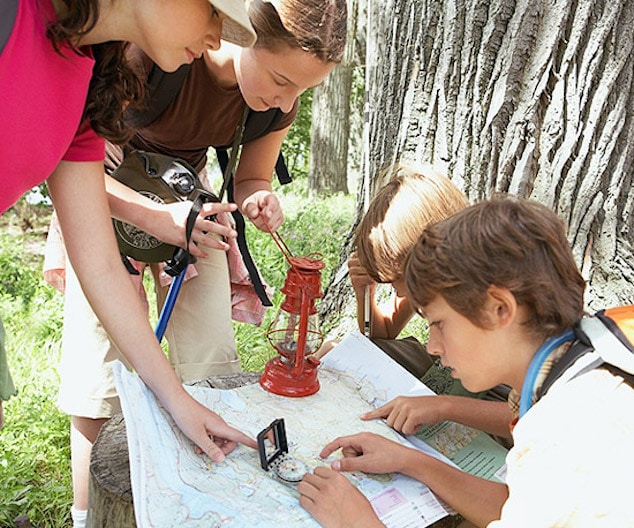
How to help young children learn to be more independent. Setting goals, routine for your preschooler and learn to grow while they work and play.
Young children are known to have a mind of their own and tend to do the things they like without being fully aware of the effects of such acts on their parents. Therefore, creating a laid-out routine is a great way of helping their young minds be more independent. Activities like: taking a jacket off when returning from school, hanging up the backpack and even washing the hands can turn into a normal habit. Even when you are not around them, they can go through with the whole routine successfully.
You might think taking the shoes off your child’s feet would be a whole lot faster and save you some time, but this will make it slower for them to become independent. Handling out chores is also a great way to build their Independence. You can start by instructing them always to put their dirty clothes in the laundry bin.
Also, there’s a great chance of helping your kids take the lead during playtime. Giving them activities like puzzles, arts and crafts will help increase their focus for a longer period. Free play is a wonderful way to help your child learn the art of creativity and increase their problem-solving skills. You can give them paint and brush, crayons, or even blocks and let them come up with something without your input.
Cheer them up when they can do things by themselves, play with them when they do, and let them know you have noticed their learning and growth process. Or why not let them try a bit of everything and then decide what inspires and fulfills them? Newtonshow multi-activity camp in Singapore gives kids the perfect opportunity to try out new disciplines.
Ways To Help Your Preschooler Build Their Independence
Children are said to pursue Independence right from birth, and we see this in their everyday activities, from trying to feed themselves to demanding to dress up by themselves. The various opportunities that surface while developing Independence can build perseverance, great self-esteem, and a sense of self.
Nevertheless, it is hard to watch your preschoolers stepping on a stool to reach the cereal box or the glass of milk probably. You might even imagine how messy it might turn out at the end and how long it’ll take them to complete whatever task they want to do.
Given how much our stress levels can spike at any time, our leniency for mess may be much smaller than normal. Therefore, it is paramount to set out time and opportunities to help your preschooler build their Independence, and what better way to do that than to show them exactly how to? Here are some easily laid out ways to do that.
Establish Daily Routines
Routines are a usual order and way of doing something, and in nurturing Independence, establishing a routine is very important. Children take more responsibility when they know what to do and what is expected. The act of taking a shower or brushing the teeth is a routine, as they both involve taking multiple steps.
The more a child goes over these routines, the more they know what to do and can do it with less help. Therefore, you should allow them to do simple things like putting toothpaste on their toothbrush or fixing the laces on their shoes. You are telling them that you have faith in them, and you are also there to help whenever they need you.

Permit Your Child To Decide
An alternative way to support your preschooler’s Independence is to give them several choices. Involve them when it comes to their choice of clothing or the games they want to play. This doesn’t mean you give leave them unrestricted. You can provide about two options or more, then praise whatever choice they make.
This should help when your child is already insisting on doing something their way. For instance, you can ask them if they want to be carried or have their hands held while crossing the street. This will empower them and also give them a sense of safety.
Allow Your Kids To Help
Children love to help, and this is the best tool to keep them busy and help them have a sense of control. When you allow them to help you out in household activities, you increase their confidence and give them the chance to learn something new. For instance, when preparing a meal, you can give them the eggshells to help dispose of or ask them to measure the milk by turning it from a bowl into a cup. By doing this, you show them how much you trust them, which can lead to more conversations about other activities.
Hand Out Chores To Your Child
It is very okay to give chores to preschoolers. These would not be the same with the chores of older kids but would serve as a significant phase for stepping up too much larger tasks. Many researchers support giving chores to children; it is said to be a way of creating a sense of duty and self-sufficiency, also educating on the importance of cooperation and cultivating compassion.
Your child will become more responsible when given simple tasks like making their beds or feeding the pet. These chores can be made a daily routine, just like asking them to water the flowers daily can be a great outdoor activity for them.
Allow Your Child To Unravel Difficulties
Ensure that you allow your child to try out small problems that are hard to solve on their own. Children are happy problem solvers, and we often project our frustration into them. When kids learn to walk, we must allow them to fall to help them walk. Furthermore, when kids learn to wear their shoes, we must permit them to put them on the wrong feet. You can wait for your child to ask for help or give them little clues to help them out.
Introducing your preschooler to slightly difficult tasks, but still within the sphere of what they can do with some assistance, helps them understand challenging circumstances.
Facilitate projects
This can include any form of craft, giving children opportunities to direct their interest in an activity for some period. Leaving remarks and compliments on your child’s work gives them a feeling of accomplishment and boosted morals. Also, praising their efforts will improve their courage. When you do these things, you tell them how much you believe in their abilities.
Strengthen Unrestricted Play
Free plays are very important for facilitating creativity and Independence. Nevertheless, most young children will still want some form of attention from their parents during their free playtime. Give your different preschooler combinations of art materials (paints, crayons, markers), buildings gears (Legos, Magna Tiles, Blocks), or make-believe play props and let them construct something for themselves. You can further add non-toy material. Recyclable substances like paper towels and cereal boxes can be used in various ways. The paper towel can make a car, telescope, and even magic wand.

Identify what your child is captivated with. Please take note of these observations, and use them as a point of reference to further extend their play. If they become confused, help them with a solution and encourage them to try again, but this time on their own. As you watch them, try as much as possible not to intervene. You might praise their efforts and leave comments, but you ought to avoid doing the work for them. You can also make recommendations on using the different materials available and even introduce new ones.
Things To Say While They Work and Play
When the opportunities for building up your child’s Independence have been set, you need to let them be certain that you see them and you have taken note of their growth, efforts, and bravery.
You will give more positive attention to these newfound qualities when you offer continual verbal feedback. This will help the child repeat those same set of behaviors constantly.
This brings us to PRIDE skills. These skills are known strategies that can help increase the rate of positive behaviors in young children:
- P – PRAISE your child for everything they do right and for every appropriate behavior. Doing this will help them do that specific behavior more often and create a warm interaction with your child. For instance, “Great job tidying your toys!”, “I’m proud of you for finishing the puzzle game.
- R – REFLECT appropriate speech. This will help assure your child that you pay full attention to what they are doing and what they are saying. For example, your child says, “I drew a bird”. You reaffirm this by saying, “You drew a bird!” you’ll need to say this with much more excitement.
- I – IMITATE all appropriate behavior. Doing this will show positive attention to the good behavior and grow cooperation. For example, when your child finishes a puzzle, you begin to arrange your puzzles in place.
- D – DESCRIBE your child’s positive behavior. This will help bolster your children’s encouraging game and draw their interest in it. You might say, “We are building a castle together.”
- E – Be ENTHUSIASTIC! This will help your interactions become warmer and increase your child’s interest. You can achieve this by using a playful, childlike voice while talking and smiling often.






